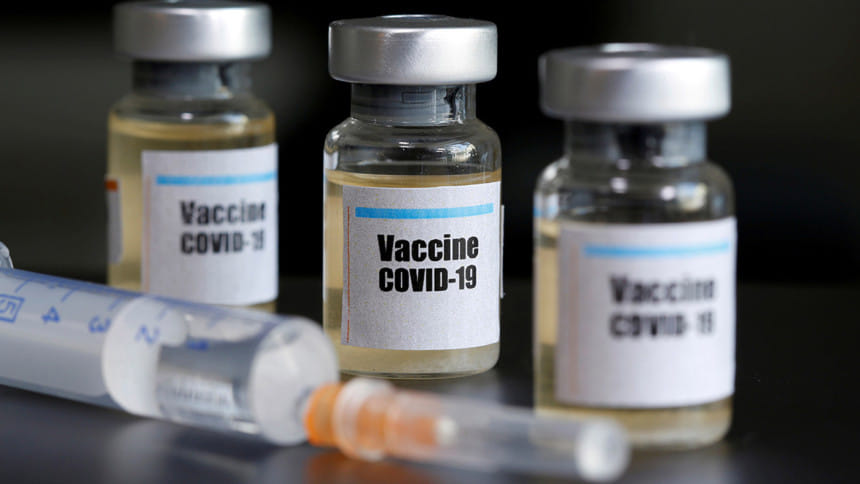Is covid-19 vaccine safe for pregnant women and breastfeeding mothers?

Pregnant women and lactating mothers have not been included in the Covid mass vaccination programme in Bangladesh since the beginning, and the rule is still in force. Earlier in this year, when Covid vaccination was initiated in various countries, including the United Kingdom, pregnant women were excluded from the programme due to lack of safety information. During the clinical trials of major Covid vaccines, pregnant women were not included in the studies.
Currently, the Royal College of Obstetrics and Gynaecology (RCOG) in the UK and the Centers for Disease Control and Prevention (CDC) in the United States recommend Covid vaccines for pregnant women and breastfeeding mothers. They assured the safety of Covid vaccines during pregnancy. For this reason, many experts have demanded an amendment in the vaccination policy during pregnancy in Bangladesh.
The question is, is Covid vaccine necessary for pregnant women? If yes, then at which stage of pregnancy should a vaccine be given? Is it in the first trimester, second trimester or in the last trimester? There are varieties of Covid vaccines available. Which type of vaccine is safer to be received during pregnancy? Is it the Oxford-AstraZeneca, Pfizer, Moderna or Sinopharm vaccine? What is the basis for these vaccines being called safe? Have there been any recent clinical trials of Covid vaccines on pregnant women?
Firstly, during pregnancy, the body's immune system becomes suppressed to retain the baby inside the womb until delivery. This is why pregnant women are more likely to get infected by pathogens. Even ordinary influenza virus infection can be severe and life threatening during pregnancy.
A large UK study, published in the American Journal of Obstetrics and Gynaecology on May 21, 2021, found that more than half of pregnant women infected with the coronavirus may remain asymptomatic. However, in some cases infection turns into severe Covid and can cause life threatening complications in pregnancy and for the foetus. Covid during pregnancy increases the chances of premature births and stillborn babies by two-folds. Development of Covid just before labour can cause pre-eclampsia. In Bangladesh, Covid significantly increases maternal and perinatal deaths, as shown in a study conducted in Mugda Hospital.
For these reasons, it is necessary to vaccinate pregnant women. According to the RCOG, pregnant women are clinically vulnerable to Covid. Vaccination will reduce the risk of severe Covid during pregnancy and thus reduce maternal and newborn mortality.
Now, the question is, how do we know that Covid vaccines are safe during pregnancy? The CDC, FDA, RCOG and JCVI have all said that Covid vaccines are safe during pregnancy. This safety information came from the V-Safe Pregnancy Registry, run by the CDC. It is an apps-based post-vaccination clinical data collection registry. Pregnant women in the US who have received the Pfizer or Moderna vaccine can enrol in the V-Safe registry and record all the side effects of the vaccine.
As of July 19, 2021, 1 lakh 36 thousand pregnant women who received Covid vaccines had registered in this V-Safe registry. A preliminary data analysis of the first 35,000 registered women's responses had been completed and the results were published in the New England Journal of Medicine on June 18. The results showed that the Covid vaccines did not increase the chances of spontaneous abortions and foetal or neonatal deaths than normal. In addition, other side effects of the vaccines were similar to those who were non-pregnant vaccine recipients. So, it indicates that the mRNA vaccines (Pfizer and Moderna) do not cause any serious harmful effects on pregnancy and newborns.
One aspect of this study should be noted carefully. Most of the participants in this analysis were vaccinated in the second or third trimester of pregnancies. Therefore, there is still a lack of information on how the Covid vaccines affect the foetus or the pregnancy outcome if the shot is given in the first trimester (first 12 weeks) of pregnancy or just before conception. The Pfizer and Moderna vaccines have previously been tested on rats which did not show any detrimental effects on the foetus, pregnancy or fertility. Moreover, in the US, during the clinical trials of vaccines, nearly a thousand volunteers became pregnant, but their pregnancy outcomes were uneventful. In Scotland 4,000 pregnant women were also vaccinated against Covid and none of them showed any detrimental side effects of the vaccine.
The Oxford-AstraZeneca, Pfizer and Moderna vaccines do not contain any chemicals that could harm the foetus. However, since the Pfizer and Moderna vaccines have mostly been tested on pregnant women till date, the JCVI, CDC and FDA have advised that these two vaccines should be given to pregnant women, and the Oxford-AstraZeneca vaccine could be the second option.
The next question is, at what stage of pregnancy is the vaccine safer? The first trimester of pregnancy is a crucial time for foetal development. Extra precaution is needed to administer any drugs during this period. In addition, studies showed that Covid in the third trimester of pregnancy is more likely to turn into severe Covid increasing the risk of maternal and neonatal deaths. Considering these facts, the JCVI and CDC rationalised administration of Covid vaccine in the second or third trimesters of pregnancy.
The Covid vaccine is also safe for lactating mothers. Studies have shown that vaccine-generated antibodies can be released into breast milk. But, none of the studies detected any other components of vaccines (spike protein or virus) in breast milk. This is why the JCVI and CDC recommend Covid vaccines to the breastfeeding mothers.
So, the following conclusions can be drawn from the above evidence: (1) Although there is no clinical trial data, according to the real-world evidence, the Covid vaccine is safe for pregnant women and unborn babies; (2) Covid vaccine is safer to give in the second or third trimester of pregnancy; (3) Pfizer and Moderna vaccines are the safer options in pregnancy and lactation, as other vaccines lack safety information; (4) Pregnant health workers or those with comorbidities must be vaccinated on a priority basis and; (5) Covid vaccines are safe for lactating mothers and they should also be included in the mass vaccination programme.
Dr Khondoker Mehedi Akram: MBBS, MSc, PhD, Senior Research Associate, University of Sheffield, UK

 For all latest news, follow The Daily Star's Google News channel.
For all latest news, follow The Daily Star's Google News channel. 



Comments